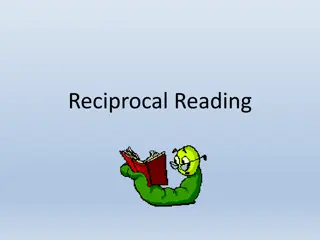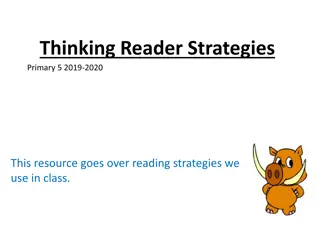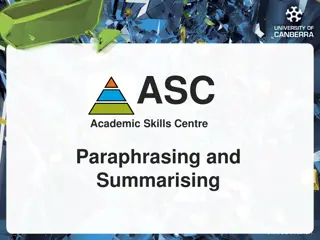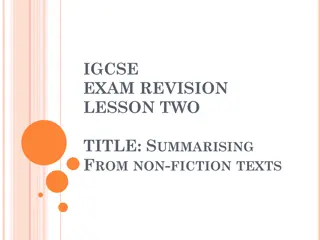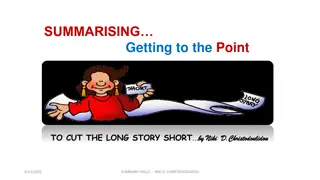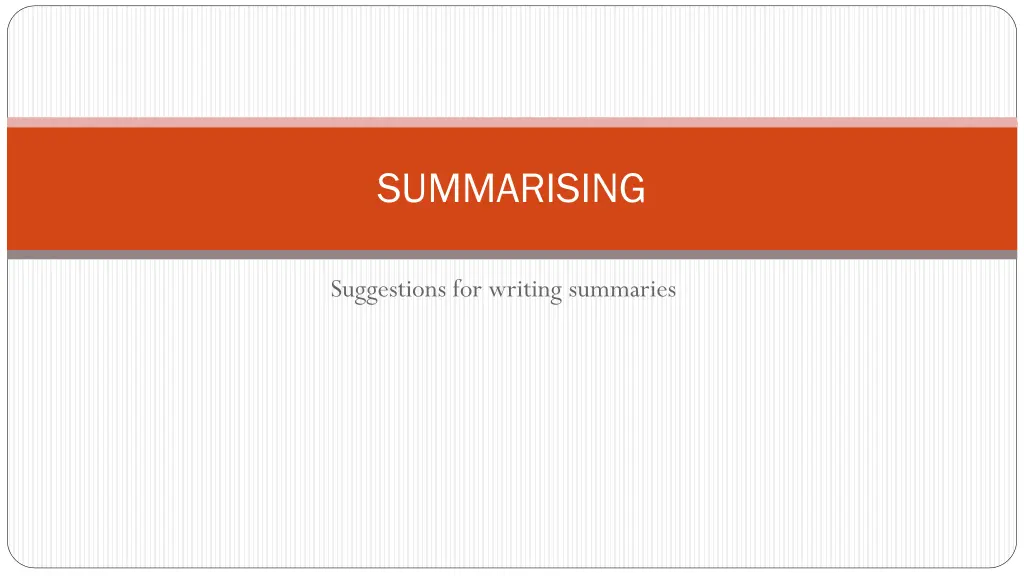
Effective Strategies for Writing Summaries
Learn how to write effective summaries by including key details, using reporting verbs, and paraphrasing main points accurately. Ensure your summaries are clear, concise, and objective without adding personal views.
Download Presentation

Please find below an Image/Link to download the presentation.
The content on the website is provided AS IS for your information and personal use only. It may not be sold, licensed, or shared on other websites without obtaining consent from the author. If you encounter any issues during the download, it is possible that the publisher has removed the file from their server.
You are allowed to download the files provided on this website for personal or commercial use, subject to the condition that they are used lawfully. All files are the property of their respective owners.
The content on the website is provided AS IS for your information and personal use only. It may not be sold, licensed, or shared on other websites without obtaining consent from the author.
E N D
Presentation Transcript
SUMMARISING Suggestions for writing summaries
At the beginning, write the title of the book/ journal, the author and article, publisher and date. Quickly read the text to get an overall idea of it. Then read it carefully, identifying the main points. As you read, make brief notes of the main points note the keywords and topic sentences (i.e. the main ones) in your own words as far as possible, using synonyms where appropriate (i.e. paraphrase).
If certain sentences or phrases are important and may be useful to quote in an essay etc., copy them exactly, word for word, and put them in inverted commas (quotation marks). If you intend to abbreviate the quotation by omitting some words, put three dots ( ) in place of the words. Remove examples and details, including dates (unless vitally important, e.g. an invention, a change of process/ procedure).
Ensure that your summary is accurate and neutral, i.e. do not add your own views to it. (These can follow later). As far as possible, condense the points into straightforward statements and rewrite in your own words where possible. Write clearly, concisely, coherently and logically.
Reporting verbs The following are reporting verbs commonly used in summaries and paraphrases. The tense can vary to suit the nature of what you are writing: As X observes has observed observed had observed points out remarks says states
Reporting verbs X affrims argues assumes believes claims concludes explains finds implies maintains suggests

